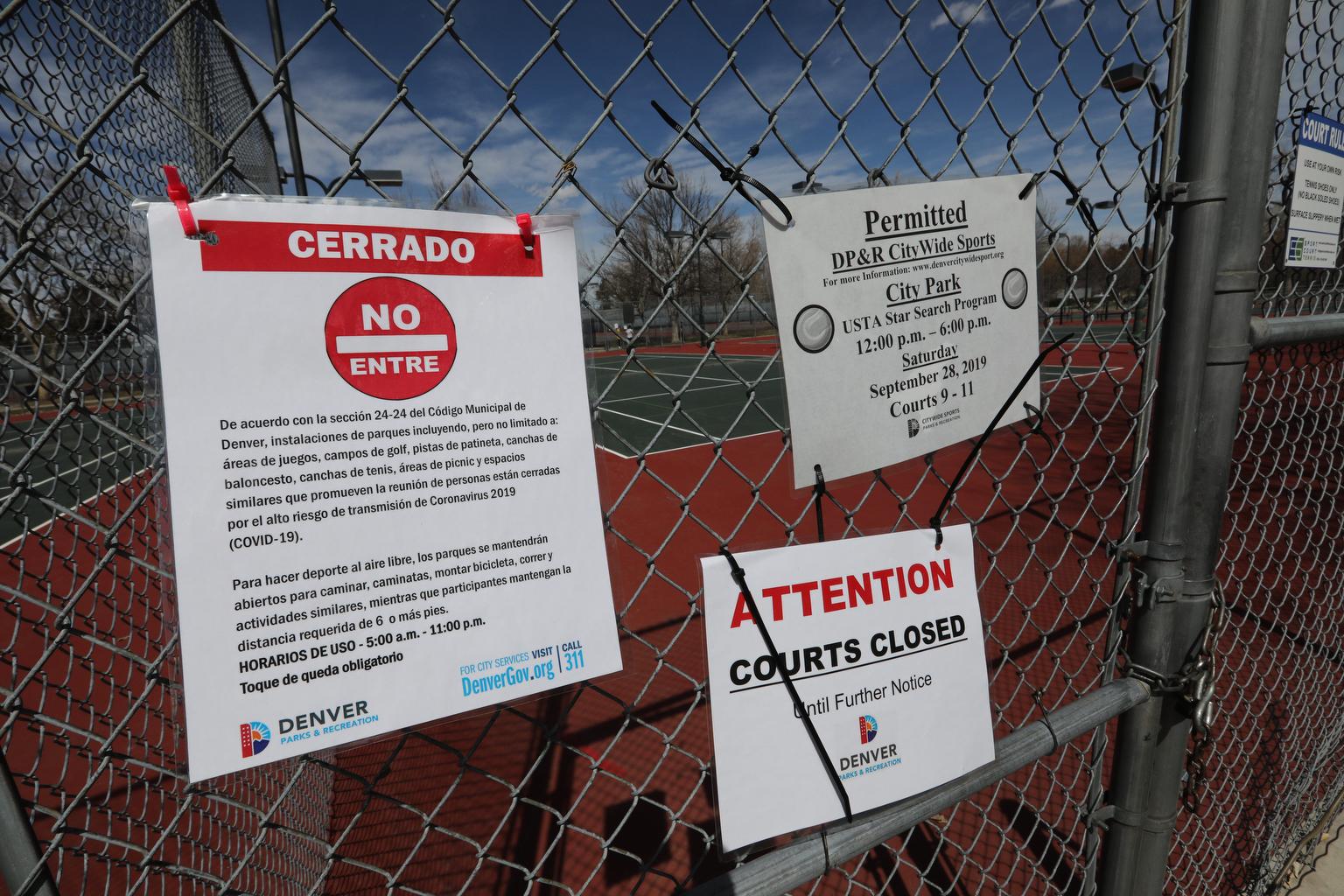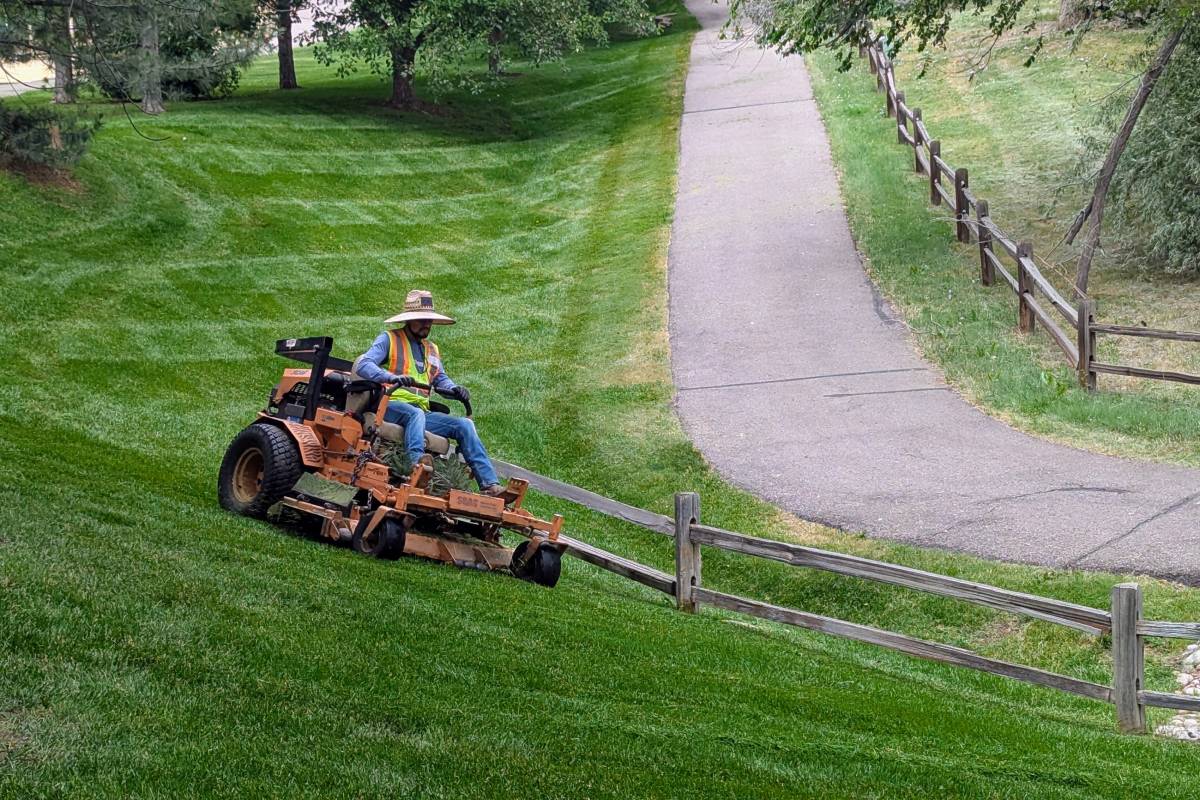
You can take a walk in your neighborhood, but you can’t shake hands with your neighbor.
You can drive to King Soopers to get Pueblo chiles, but you probably shouldn’t drive to New Mexico to get Hatch chiles.
Cross-country ski, yes. Downhill ski, no.
The statewide and Denver “stay-at-home” orders go deep to define what are considered “essential” businesses or activities. But they leave much of what Coloradans do as daily activities undiscussed.
Most of all, while they specify penalties for violations, they spend few words describing how any of this would be enforced.
Like speed limit signs on country roads, the dos and don’ts of social distancing in the “stay-at-home” era largely count on citizens to be smart, and civic-minded. Because the truth is, no cop is going to watch over to make sure you don’t crowd the checkout line.
Technically, enforcement is largely the responsibility of local police and sheriff’s departments. According to Polis’ order: “Local authorities are encouraged to determine the best course of action to encourage maximum compliance.”
Arapahoe District Attorney George Brauchler has been critical of the orders and said strictly enforcing them would lead to potentially absurd situations. He joked that people in the bathroom would have to report someone who didn’t wash their hands long enough.
“And say, ‘Dude I heard the sink on, I timed it, 15 seconds. I’m calling the cops.’”
He said, under the governor’s order, failing to wash hands for long enough is now an offense with penalties equal to heroin possession under laws passed last year that make many drug crimes misdemeanors — a fine up to $1,000 and a year in jail.
Brauchler said he’s preached for departments in his district to educate people rather than arresting or citing them for not obeying the orders. He said he’s heard reports of officers in his district having to break up a congregation of tennis players. On another call, officers had to deal with a gym class that was meeting outside but still not keeping a proper distance from one another.
“I’m waiting for the jerk weeds, and you know they’re out there,” Brauchler said. “The people who will want to create a situation, because by God, the constitution tells them so.”
Right now, there’s still plenty of confusion about what’s allowed, and rumors about how it’s being enforced.
“@CityofDenver is NOT pulling over drivers to question their travel destination,” Denver Strategic Communications Director Theresa Marchetta posted on Twitter Thursday. “If there is probable cause for a traffic infraction, or some other offense, people may be asked about the reason for their travel and should simply explain to the enforcement officer.”
Polis has said much the same in response to multiple questions about whether state troopers would be re-assigned to social distancing duty.
Denver got a head start on this when Mayor Michael Hancock issued a stay-at-home order that went into effect Tuesday. The city’s order is a little more restrictive than the state’s in that it bans nonessential travel outside the city. Hancock said he issued the order after seeing people congregating in parks over the weekend playing basketball and volleyball.
“We will enforce when and where necessary,” Hancock said. “This is not a recommendation — it is now an order.”
But so far it’s been quiet in Denver. Maybe the gravity of a global public health crisis of unequaled magnitude has sunk in. Police departments in metro Denver have not reported any serious violations, but they also report that overall crime is down almost 30 percent since the start of the month.
“We’re focused on education right now,” said Heather Burke, a spokesperson for the city. She said newly trained city staff “will deploy to achieve compliance with the stay-at-home public health order, as we want people to be safe, not punished.”
That is a good way to handle this — having city staff, rather than police officers looking for compliance, according to Mark Silverstein, legal director of the ACLU of Colorado.
Silverstein is concerned about the potential for racial bias if police must do the bulk of the enforcing.
“We all need to be on the lookout for that, and police departments need to be on the lookout for that,” said Silverstein. “That needs to be curbed, the departments should make that a priority if they get any evidence that that’s happening.”
In Colorado Springs, there have been a few minor violations of the governor’s various orders, but the Police Department said it’s focused on educating people rather than handing out citations.
“Not everyone’s got it yet,” said Lt. James Sokolik with the Colorado Springs Police Department.
In Jefferson County, there also haven’t been any incidents with the statewide order.
“We’re kind of at the same point right now, just educating,” said Mike Taplin, a spokesman for the sheriff’s department.
Taplin added that there have been no major incidents involving complying with the orders. The department has been fielding a few tips from people about nonessential businesses that are still open.
Brauchler said he’s worried about the vacant businesses and schools as potential targets for burglaries. He’s also worried about what comes next, when the number of coronavirus cases starts dropping as these extreme social distancing measures do what they’re intended to do, and people start to think the virus has been beaten.
“I just don’t want people to get cocky and start pushing the envelope of behavior,” he said.








